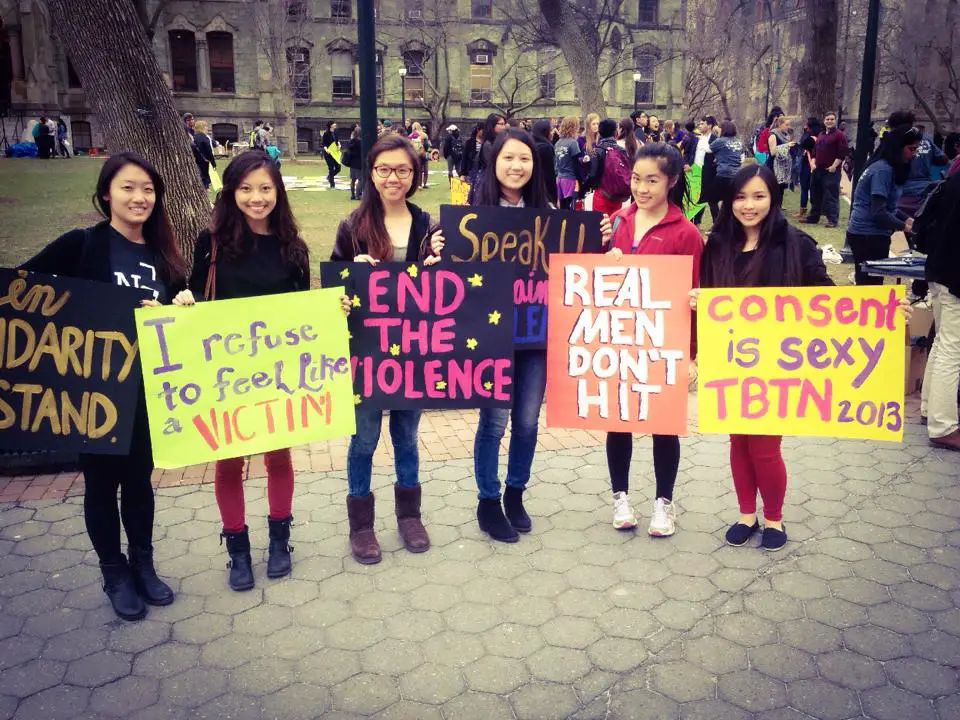Domestic Violence: What Students Need to Know
These six tips can help students identify, and more importantly stop, domestic violence against themselves or loved ones.
By Bridgett Brumbaugh, Youngstown State University
“He’s a little over protective. It’s no big deal.”
“She gets a little jealous sometimes. She loves me and that’s how she shows it.”
“It’s a few hurtful words. Everyone argues.”
“I said no, but gave in. That’s not rape.”
These are the words of denial. Students, faculty and law enforcement continually make excuses for the physical, sexual and verbal abuse that occurs across the country. Abusive behaviors are not okay, and students must stop accepting them as a normal part of dating.
The social repercussions of talking about or acknowledging the abuse keep victims trapped in the situation. Watching for signs, developing a support network, providing more on campus resources and changing the mentality of “blaming the victim” are measures all students can take to tackle this issue.

The Center for Disease Control estimates that in the United States, 1 in 45 men and 1 in 10 women are victims of sexual violence. The report also found that nearly half of all men and women have experienced aggressive behavior by an intimate partner in their lifetime. However, most cases of domestic violence go unreported. According to one study, the most common excuse for not reporting violent incidents was classifying it as a private/personal issue.
Are you are being too judgmental or overreacting to a situation? Maybe not. The cycle of violence is a chart used to analyze the behaviors of abusive people. It can be a first step in realizing that a serious problem is going on, rather than labeling the actions as immature, angry or out of character. Once you understand the behaviors are not normal or healthy, you can take the next steps.
So, what can you do or how can you help?
1. Utilize Campus Resources
Campus resources like counseling services, campus police, resident advisors and professors are available. A picture of the abuser can be provided to campus police to identify when they are on campus. Resident advisors can be cautious of someone approaching them and asking about you.
When I lived on campus, the ex-husband of a resident was looking for her. He called random numbers asking if anyone knew his ex, identified himself as her husband and told people he was merely looking for his wife. Our resident advisor quickly held a meeting, documented the calls and notified campus police.
2. Alert the Police
You must also contact local law enforcement. Do not be surprised if they are dismissive of your complaint. Studies indicate that members of law enforcement have a high rate of abusers in the profession. Stay strong, demand an incident report number and do not let it go.
3. Contact a Local Shelter
The shelter can provide counseling, housing and legal services if you qualify. This may be the last place you want to go, especially if you have pets. Remember there are resources for housing your pets. Redrover.org offers funding to board your pet as do a few other organizations.
4. Support the Victim
If you are a friend, do not judge the victim or make excuses for the abuser. Offer an open ear, a place to stay, good music or anything positive.
You have no idea what has been taking place behind closed doors, and the abusive behaviors may have already been driven away close friends.
You can also be the one who picks up personal items from the abuser. Do not encourage your friend to go alone or meet with them. Go with your friend to the doctor, appointments and any other place they may need you. A few moments of your time can be a life saver for your friend.
5. Do Not Ignore It
If your mind starts to justify behaviors or wanders to the avoidance area of your brain, stop those thoughts. You are getting an education to better yourself and increase employment prospects. Do you know what can happen if you do not stop the abuse? You can lose your job. Only 15 states provide workplace protection laws.

If this person calls your job, shows up to your place of employment or begins emailing staff, you will start to ask yourself why you did not do something sooner. You may be able to pursue legal action for wrongful termination, but do all of the reporting you can before it gets to that point.
6. Stay Safe
Above all else, you need to protect you. Your life is much more important than the opinions of others. Use all of the resources available to you, reach out to close friends and keep yourself focused on living your life.
You can get your education and stop the violence from escalating. It takes awareness and action from students and faculty to ensure victims of domestic violence remain safe.

















Wow. SMH
[…] not only did Rihanna bring light to Snapchat’s mistake, but she also spoke out for all victims of domestic violence, making her criticism more so about protecting other victims rather than […]